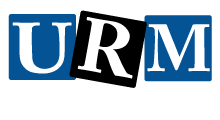SUSTAINABILITY
Working towards a greener future, together.
In order for us all to thrive and leave a positive legacy for future generations, we must work together towards building a greener, more sustainable world.
Your community is our community.
As one of Australia’s leading resource management companies, we are acutely aware of our responsibility to lead by example, protect the environment and be active supporters of the communities we serve.
We understand that URM’s practices and those of our clients ultimately affect the resources available to future generations.
Therefore, every decision our company and employees make is underpinned by a sustainability mindset.
By hiring the brightest minds, investing in the latest technology, developing innovative resource recovery systems and collaborating with our stakeholders, partners and clients, we are able to contribute towards the betterment of our planet.
Ultimately, we want to teach all Australians how to reduce, reuse, recycle and to adopt these sustainable life-changing behaviours with ease.
Environmental Sustainability in Action
Sustainability is our priority and we aim to be role models in this regard.
All URM employees are committed to our vision and serve as company ambassadors in the field.
URM works in partnership with clients to assess needs and provide the most effective, cost efficient and environmentally sustainable solutions for each situation.
We have the capacity, resources and personnel to educate and provide practical guidance in sustainable resource management.
URM's Sustainability Mission is Three-Fold:
Environmental Management
URM is committed to responsible environmental management, whilst actively servicing the Australian communities in which we operate in.Protecting the Environment
URM is committed to protecting the environment as a core element of operating a sustainable business, taking into account how we use resources now and in the future.Setting the Standard
URM is dedicated to developing waste and environmental management solutions that are forward thinking and set the standard for environmental services industry-wide.Household Recycling Tips
Nearly half of all household waste is organic, and composting diverts it from landfill, so set up a worm farm or get a compost bin for the backyard. The compost will do wonders for your garden! Read up on composting here.
Tips
- Check what’s in the fridge before going shopping.
- Don’t shop on an empty stomach (you’re more likely to overbuy).
- Only buy a few days ahead.
- Make leftovers and freeze food you don’t finish.
- Compost the rest.
- Use the compost to enrich your garden soil.
Did you Know?
40% of bought food gets thrown out. That's 1 out of every 5 bags of groceries thrown away!
Paper and cardboard make up 23% of household rubbish. They’re one of the easiest materials to recycle at home. Putting your paper in the right bin means fewer trees are felled for new products. In addition, paper made from recycled materials uses 99% less water and 50% less energy.
Most paper and cardboard household recycling bins accept: cardboard boxes, newspapers, magazines, brochures and flyers, office and printer paper, envelopes (including those with windows), telephone directories, egg cartons, paper bags and towel.
Tips
- Remove sticky tape, polystyrene and packing peanuts before placing cardboard in the bin.
- Flatten boxes to create more space.
- Turn used paper into scrap note paper instead of using virgin paper.
To reduce your paper consumption, try to:
- Buy products made from recycled paper.
- Email instead of printing documents.
- Print double-sided.
- Use an electronic diary instead of a paper one.
- Put a 'no junk mail' sticker on your mailbox.
- Ask for electronic receipts instead of printed (many businesses offer this option).
Did you Know?
The average office worker throws out 10,000 sheets of high grade A4 paper per year. You might be doing your bit at home, but what about at the office? Get recycling bins for your workmates. Call (02) 8424 2200 for a quote.
Steel and aluminium cans can be recycled infinitely. Many cans already consist of 100% recycled material, including: aluminium food and drink cans, steel food and drink cans, aluminium foil, aluminium pie trays, empty aerosol cans.
Tips
- Wash out cans first.
- Don’t worry about peeling off labels.
- Crush cans to save space in your bin.
- If you’re out and there’s no commingled bin nearby, take your can home to be recycled properly.
Did you Know?
One recycled aluminium can saves enough electricity to run a TV for 3 hours.
Like steel and aluminium, glass is infinitely recyclable too. Glass bottles and jars are sorted by colour (green, amber, clear), then crushed, remelted and made into new glass products. Around a quarter of glass bottles and jars are made from recycled content. Recycling saves 75% of the energy to make glass from raw materials. Most glass household recycling bins accept: clear, green or amber bottles (e.g. wine, beer, juice, soft drink, sauce) and glass jam jars.
Tips
- Leave labels, rinse glass and throw the lids in your general rubbish bin.
- To conserve water, wash glass in a bucket or used dish water.
- Glass that remains intact during collection is much easier to sift through at a materials recovery facility, so try to avoid breakage!
- If you’re out and can’t find a commingled bin, take your glass home with you to recycle properly.
Did you Know?
Oven proof dishes, light bulbs and drinking glasses cannot go in household recycling bins. Just 5 grams of drink ware glass can contaminate a tonne of recyclable glass. Wrap unwanted or broken glass in paper and put it in the general rubbish bin.
Plastic pollution is a growing problem globally. Single-use plastics like straws and cutlery are used for a few minutes and thrown away. They need heavy resources like oil and coal to make, and can take up to 1000 years to break down. Plastic contaminates our oceans, affecting millions of birds and marine life each year. To protect our oceans and wildlife, we must dispose of it responsibly.
Tips
- Rinse plastic containers before throwing them in the bin.
- Try to minimise the amount of plastic you use.
- Use reusable shopping bags instead of plastic bags.
- Choose travel mugs instead of takeaway cups.
- Fill up a reusable water bottle instead of buying bottled water (you’ll save money too!).
Australians are among the highest users of technology, and e-waste is one of the fastest growing types of waste (Australian Bureau of Statistics). Electronics that aren’t properly recycled can seriously impact the environment. Many contain lead, cadmium, mercury and other toxic materials that can leach into the soil and water. Up to 95% of your old electronics could be used to create new products. Electronics cannot go in kerbside bins, but there are ways to deal with them responsibly.
Tips
- Sell working electronics online if you no longer want them.
- If broken, check if the item is still under warranty or try fixing it. It may just need a small part!
- Take broken electronics back to the store (many stores have recycling programs).
Batteries cannot go in your regular household garbage as they contain things like lead, cadmium, mercury and other dangerous chemicals that can leach into our soil and water. Numerous electronics stores have battery recycling bins for AA, AAA, C, D and 9V batteries (rechargeable or non-rechargeable) to ensure they’re disposed of appropriately.
Tips
- Ask if your local electronics store will take your regular, laptop, camera or mobile phone batteries.
- Look up 'batteries' on recyclingnearyou.com.au.
- Plug electronics into an outlet rather than using the battery.
- Buy rechargeable batteries (they can be reused hundreds of times).
Hazardous or liquid waste includes fats, oils, grease and wastewater. These fluids cannot go in the general rubbish stream. The toxic materials cause serious damage to the environment. Learn more about liquid waste here, or contact us to dispose of it for you.


